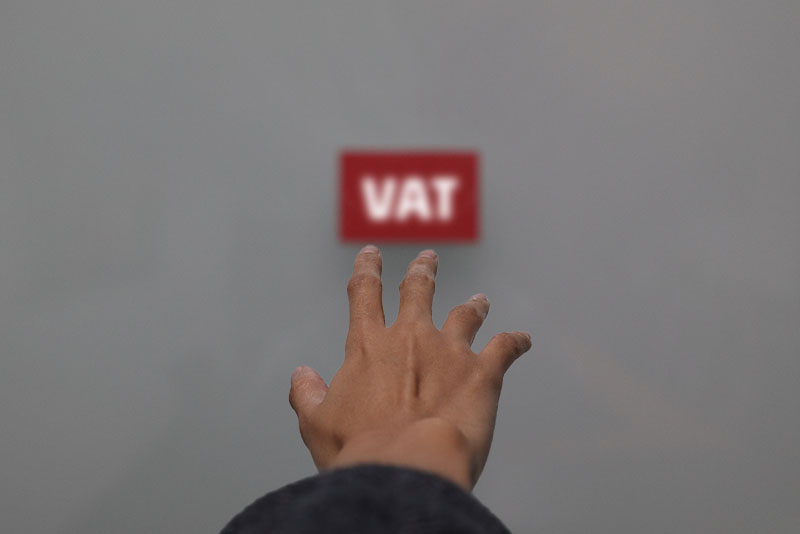Atty. Irwin Nidea Jr. discusses the conflicting provisions of TRAIN and CREATE in the VAT treatment of PEZA companies and why CREATE, as the newer law, might have impliedly repealed some VAT provisions of TRAIN.

Ultra Vires VAT
Atty. Irwin C. Nidea Jr.
"In the larger scheme of things, the policy direction may really be the imposition of VAT on certain export sales. But the conflicting provisions of TRAIN and CREATE will most probably derail this. As stated earlier, CREATE has even affirmed zero-rating of export sales subject to the only condition that the sale must be directly and exclusively used for its registered activity."
PEZA has temporarily conceded to the directive of the BIR that purchases by PEZA entities outside the customs territory is subject to VAT at 12%. It is for good measure since as we know, issuances by the BIR are valid until the court says otherwise. This includes Revenue Regulation (RR) 9-2021.
This Revenue Regulation was promulgated to implement the imposition of 12% VAT on certain transactions previously taxed at zero rate under the Tax Code, after satisfaction of the conditions set forth in the TRAIN Law. As a recap, the following conditions were allegedly satisfied: (1) the successful establishment and implementation of an enhanced VAT refund system, and (2) all pending VAT refund claims as of Dec. 31, 2017 were fully paid in cash by Dec. 31, 2019.
 It is important to note that based on the wordings of RR 9-2021, what it implements is the TRAIN Law. There is no question that the TRAIN Law has imposed the above conditions before VAT zero-rating is scrapped on certain transactions. But the CREATE Law was enacted after the TRAIN Law and the former has provisions which are contrary to RR 9-2021. In CREATE, it stated that sale to PEZA entities that are directly and exclusively used for its registered activities are considered zero-rated. Does this mean that sale to PEZA entities is still zero-rated, subject only to the condition that they are directly and exclusively used for its registered activities? Is this an implied repeal of the conditions set under the TRAIN Law, which and RR 9-2021 now , which seeks to implement the older law?
It is important to note that based on the wordings of RR 9-2021, what it implements is the TRAIN Law. There is no question that the TRAIN Law has imposed the above conditions before VAT zero-rating is scrapped on certain transactions. But the CREATE Law was enacted after the TRAIN Law and the former has provisions which are contrary to RR 9-2021. In CREATE, it stated that sale to PEZA entities that are directly and exclusively used for its registered activities are considered zero-rated. Does this mean that sale to PEZA entities is still zero-rated, subject only to the condition that they are directly and exclusively used for its registered activities? Is this an implied repeal of the conditions set under the TRAIN Law, which and RR 9-2021 now , which seeks to implement the older law?
CREATE has affirmed the VAT exemption on importation and VAT zero-rating on local purchases. Again, the only limitation is that it shall only apply to goods and services directly and exclusively used in the registered project or activity by a Registered Business Enterprise (RBE). There is no reconciling provision that I know of between TRAIN and CREATE on this aspect. Thus, it may be argued that even if the conditions laid down in TRAIN Law were actually met, CREATE has made it irrelevant. The new law now categorically brings back the VAT zero-rating incentive with a new condition, i.e., the purchase must be directly and exclusively used for the registered activity.
Interestingly though, the implementing rules and regulations of CREATE added a provision acknowledging RR 9-2021 and the VAT burden it carries. Is this an ultra vires act by the offices that crafted the IRR Department of Finance and the BIR? The additional provisions in the implementing rules of CREATE may be considered as unauthorized administrative legislation. It may be considered as alteration of the application of VAT zero-rating, and restriction of incentives not contemplated by the legislature.
In the larger scheme of things, the policy direction may really be the imposition of VAT on certain export sales. But the conflicting provisions of TRAIN and CREATE will most probably derail this. As stated earlier, CREATE has even affirmed zero-rating of export sales subject to the only condition that the sale must be directly and exclusively used for its registered activity.
Also, what happens now to the cross-border doctrine? PEZA entities under this doctrine are considered as separate from the customs territory. It is considered as “another country”. So, any sale by an entity inside the customs territory to a PEZA entity is considered zero-rated. This was affirmed by the Court of Tax Appeals and even the Supreme Court in many cases. This principle also applies when a company that is located in Singapore or any other country, sells to a PEZA entity. No VAT will be paid.
Amid the confusion and reservations by the PEZA locators, the BIR must step in and clarify all the confusions with finality. I hope the new regulations or further clarifications will be consistent with the letters of the law and fair to all stakeholders.
The author is a senior partner of Du-Baladad and Associates Law Offices, a member-firm of WTS Global.
The article is for general information only and is not intended, nor should be construed as a substitute for tax, legal or financial advice on any specific matter. Applicability of this article to any actual or particular tax or legal issue should be supported therefore by a professional study or advice. If you have any comments or questions concerning the article, you may e-mail the author at This email address is being protected from spambots. You need JavaScript enabled to view it. or call 8403-2001 local 330.



